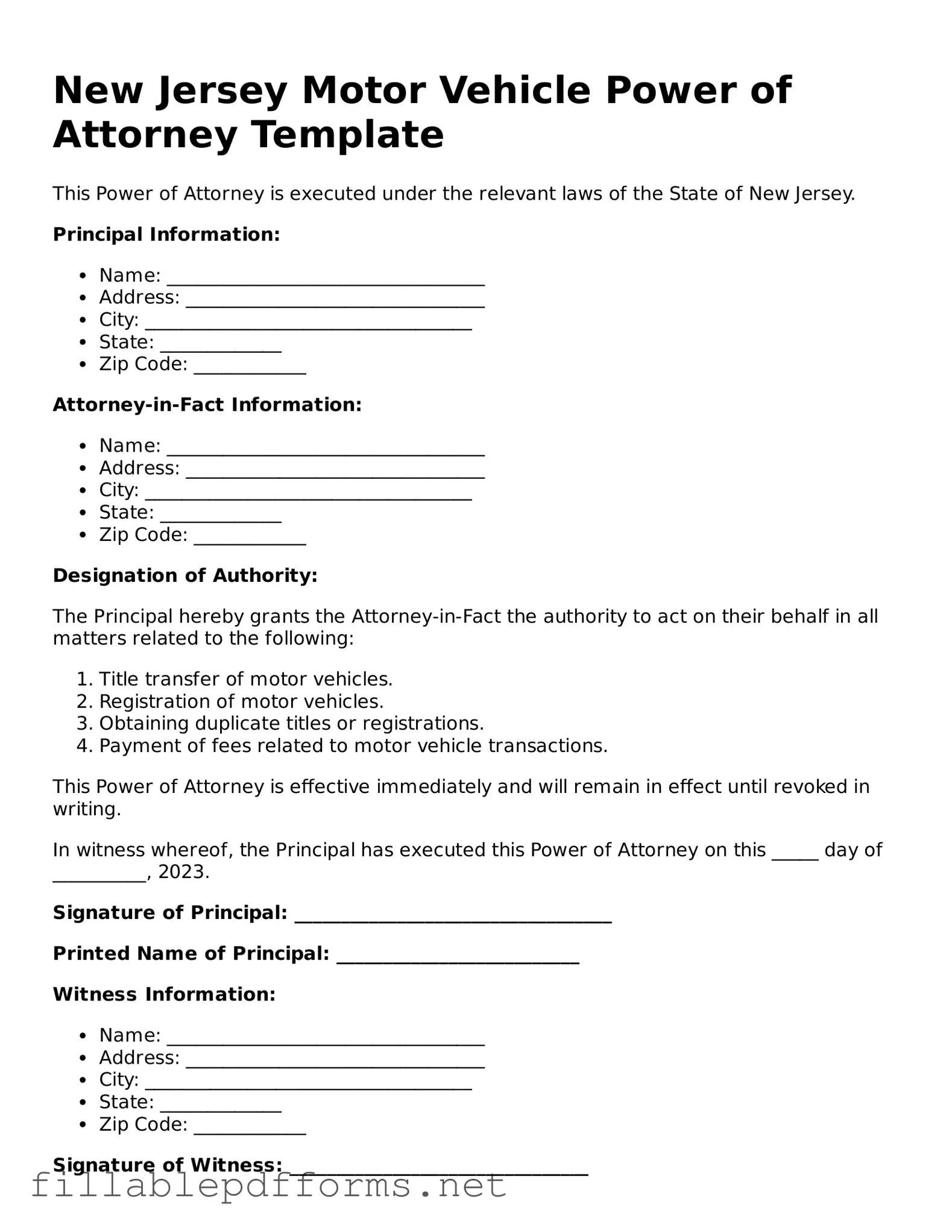Attorney-Verified Motor Vehicle Power of Attorney Form for New Jersey State
The New Jersey Motor Vehicle Power of Attorney form allows an individual to designate another person to act on their behalf regarding motor vehicle transactions. This document is essential for those who need assistance with tasks such as registering a vehicle, obtaining a title, or transferring ownership. By using this form, individuals can ensure that their vehicle-related matters are handled efficiently and effectively.
Launch Editor Here

Attorney-Verified Motor Vehicle Power of Attorney Form for New Jersey State
Launch Editor Here

Launch Editor Here
or
▼ Motor Vehicle Power of Attorney PDF
Almost there — finish the form
Complete Motor Vehicle Power of Attorney online fast — no printing, no scanning.